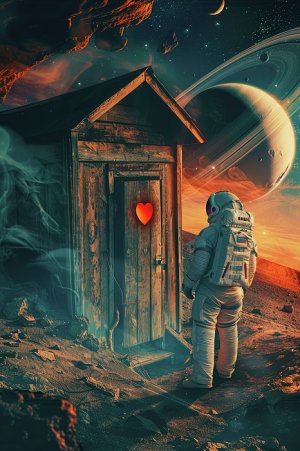Well, here's what totally blows my mind and leaves it in a pile of ashes. Many physicists and cosmologists believe the universe to be infinite, meaning there is no edge or boundary. It just extends to infinity. However, there is considerable evidence that there was a Big Bang, which seems to counter the infinite space concept, and besides, how could we know that the universe is 93 billion light years in size if it is infinite.
Well, apparently in some bizarre physics I don't understand, those concepts can coexist. Imagine a Slinky that extends to infinity. Now also imagine that you could compress any part of the Slinky into nearly infinite density. It doesn't change that it's infinite, it just changes the density at a certain point. Now imagine that it's not a Slinky, but a universal expanse in all directions that goes on forever, but it can be compressed to nearly infinite density. If that point explodes, it explodes into itself that has no boundary.
My mind turns to mush just trying to grasp that, but from what I understand, when cosmologists speak of the size of the universe, they are just referring to the size of the observable universe. They look at a galaxy that is 13.8 billion light years away, and then calculate how far it has traveled since the photons left there on their journey to earth, and estimate where it would be, based on the red shift which indicates the speed it is traveling.
It's like being in a rowboat in the middle of an ocean that extends forever, but the fog is so dense that we can only see for a hundred feet. What is beyond that is an infinite ocean, but we will never know beyond what we can see. Then what about multiverses (If they exist). How could ours be infinite, if there are others? In addition, what would happen if another collided with ours, or has it already, or how would we know? That gets into the Brane model, and my brain is out to lunch.



